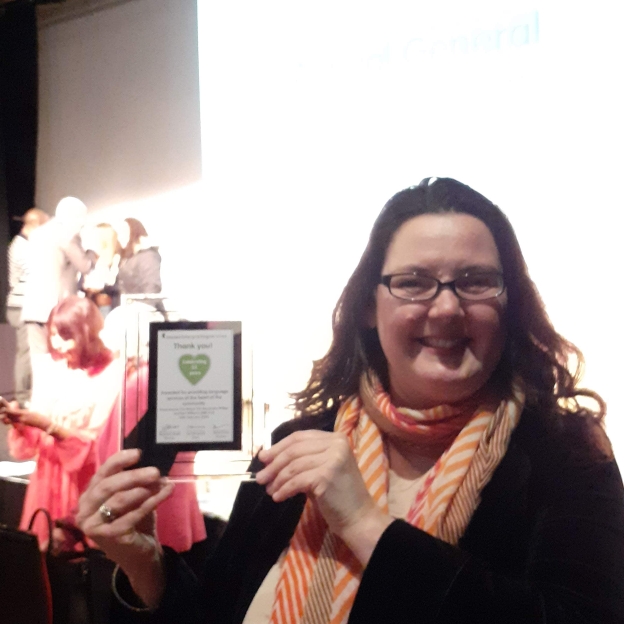What are interpreting services and how to request an interpreter

Language barriers can create significant challenges in healthcare, legal settings, business meetings, or public services. This is where interpreting services come into play.
In this blog, we’ll explore the different types of interpreting services, where interpreting is used, and why interpreters can be a turning point for public sector organisations and businesses in the UK.
What are Interpreting Services?
Interpreting is the process of converting spoken or signed language from one language into another in real time. Unlike translation, which deals with written texts, interpreting focuses on verbal and non-verbal communication.
Interpreting is used in legal courts, hospitals, immigration offices, social services, education, and businesses, ensuring that individuals who do not share a common language can engage in productive conversations.
So, what does an interpreter do? An interpreter listens to a speaker in one language, processes the message, and conveys it accurately in another language. This requires linguistic expertise, cultural awareness, and quick thinking.
How Does Interpreting Work?
Interpreting can be done in different modes, depending on the situation:
- Simultaneous Interpreting: the interpreter conveys the message in real-time while the speaker continues talking. This is often used at conferences and international meetings.
- Consecutive Interpreting: the speaker pauses after a few sentences, allowing the interpreter to translate the message. This is common in legal settings and healthcare.
- Whispered Interpreting (Chuchotage): the interpreter whispers the translation to a small audience, often used in courtrooms or private business meetings.
- Relay Interpreting: used when multiple languages are involved, with one interpreter translating to an intermediary language before it is interpreted again.
Types of Interpreting Services
There are different types of interpreting services available depending on the setting and needs of an organisation. Understanding these options helps businesses and public sector bodies select the most effective solution.
In-Person Interpreting Services
An interpreter is physically present during the interaction. This method is commonly used in hospitals, courts, and social services where face-to-face communication is very important.
Interpreting Services Over the Phone
This is a fast and cost-effective solution for emergencies, customer service, and short conversations. A professional interpreter joins a phone call to facilitate communication between two or more parties.
Video Interpreting
Video interpreting provides remote language support through video conferencing tools such as Zoom or Microsoft Teams. It combines the benefits of in-person interpreting services and interpreting services over the phone, offering visual and non-verbal communication cues. This is particularly useful in healthcare, business, and legal proceedings.
On-Demand Interpreting Services
For organisations needing immediate language support, 24/7 interpreting services are available at Vandu Languages, 365 days a year. These allow businesses and public sector bodies to access interpreters at any time, ensuring that language barriers do not delay urgent matters.
Who Needs Interpreters?
So, who uses interpreting services? The answer includes:
- Public Sector Organisations: NHS hospitals, courts, police services, local councils, and social services rely on interpreters to support ethnically diverse communities.
- Businesses: Companies with international clients, suppliers, or employees use interpreters for negotiations, training, and customer support.
- Legal Services: Law firms, immigration offices, and courts require interpreters for hearings, asylum applications, and legal advice.
- Education: Schools and colleges use interpreters for parent-teacher meetings and student support.
Whilst these sectors are among the most frequent users of interpreting services, the need for language support extends far beyond them. Interpreting is not exclusive to any single industry, business, or organisation. More examples of who is using interpreting services can be found in one of our previous blogs.
Event organisers may require interpreters for multilingual conferences, charities might need language support for community events, and even tech companies use interpreters for global product launches. Any situation where people speak different languages and need to communicate clearly can benefit from professional interpreting services.
Where Is Interpreting Used?
Interpreting is required in various settings, including the following:
- Medical and Healthcare: hospitals and GP surgeries must ensure accurate communication between doctors and patients who are not proficient in English. A Kurdish Sorani-speaking patient in an A&E department, for instance, may require an interpreter to describe their symptoms accurately to a doctor.
- Corporate Settings: business meetings, negotiations, and training sessions. A UK-based company expanding into China might hire a Mandarin-speaking interpreter to facilitate contract discussions with a potential partner.
- Legal and Judicial Settings: in courts, police stations, and immigration offices, interpreters help speakers who are not proficient in English understand legal proceedings, provide testimony, and communicate with solicitors. For example, in a criminal trial, an interpreter ensures that a defendant who speaks Arabic can understand the charges and respond accurately.
- Education and Training: schools and colleges use interpreters for parent-teacher meetings, student support services, and international academic conferences. For example, a headteacher may require an interpreter to discuss a child’s progress with parents who speak Romanian.
- Tourism and Hospitality: hotels, tour operators, and customer service teams use interpreters to assist international visitors. A tourist in London who speaks Vietnamese might require an interpreter to handle a lost passport situation at their hotel.
Once again, interpreting is not exclusive to these sectors. From media and entertainment, such as live TV broadcasts, to sports events where international athletes require language support, professional interpreters are used in countless industries.
Where Is Simultaneous Interpreting Used?
This mode is commonly used at international conferences, European Parliament sessions, live broadcasts, and UN meetings, where speakers of multiple languages need to follow discussions in real time.
It is also common in diplomatic events, multinational business summits, academic lectures, and large-scale trade shows for interpreters to work in soundproof booths or use portable equipment to deliver translations without interrupting the speaker.
Rosalie Nickerson, one of our French interpreters, recalls an especially memorable experience:
"An interpreting job I still remember is the Trade Union Congress in Brighton in 2022! It was epic! [...] I was translating simultaneously, and it was very exciting as there were speakers from all over the world! I had to stand in the conference room with a microphone, whilst my client listened in. It was nerve-wracking at first, but I soon settled into the rhythm!”

Why Are Interpreters Needed?
Public sector organisations and businesses often face significant challenges when engaging with individuals who have limited English proficiency. Miscommunication can lead to delayed services, misunderstandings, or even legal consequences.
In a healthcare setting, for instance, a patient who cannot describe their symptoms accurately may receive an incorrect diagnosis. With an interpreter present, doctors and patients can communicate clearly, leading to better treatment outcomes and improved patient trust.
Businesses, too, can see significant benefits from using interpreters. Companies interact with international clients, suppliers, and employees daily. By employing professional interpreters, businesses can expand their reach, build strong international relationships, and avoid costly misunderstandings.
Beyond practical and financial benefits, hiring interpreters demonstrates a commitment to inclusion and accessibility. Whether in social services, education, or corporate settings, interpreters help organisations connect with diverse communities. This encourages trust, engagement, and social cohesion, ensuring that language is never a barrier to essential services or opportunities.
How to Request an Interpreter
If your organisation requires an interpreter, follow these steps to ensure a smooth process:
1. Identify Your Needs
Determine the language pair (e.g. English to Arabic) and think about the type of interpreting service you need (in-person, phone, video).
2. Select a Reliable Provider
Work with a professional interpreting agency experienced in your sector. Ensure they offer qualified and accredited interpreters. Consider providers with 24/7 interpreting services for urgent requests.
3. Book in Advance
For court hearings, medical appointments, or business meetings, request an interpreter as early as possible. If urgent, opt for on-demand interpreting services (each agency may manage these differently, so if you are a new customer, we recommend calling the service provider beforehand).
4. Provide Context
Brief the interpreter or service provider about the topic, technical terminology, and cultural sensitivities. Share relevant documents or background information in advance.
At Vandu Languages, we accommodate a variety of booking preferences to suit our clients' needs. 28% of interpreting requests are made over the phone; 29% of bookings are completed online (this option is for existing clients only); and 43% are arranged via email.
Whatever your requirements, you can choose the method that works best for you! To book an interpreter or learn more about our services, contact us via email at info@vandu.co.uk or call us on (+44) 01273473986.
How Much Does an Interpreter Cost?
The cost of interpreting services varies based on several factors, including:
- Language Pair: less common languages may have higher rates.
- Type of Interpreting: simultaneous interpreting is typically more expensive than consecutive or telephone interpreting.
- Location: in-person interpreting services may include travel costs.
- Duration: longer assignments usually cost more.
- Urgency: on-demand interpreting services and last-minute bookings may incur higher fees.
Learn More About Interpreting Services
By understanding what interpreting services are, how interpreting works, and how to request an interpreter, organisations can provide better services, comply with legal requirements, and support diverse communities effectively.
For reliable interpreting services, it’s always best to partner with a trusted provider who understands the unique challenges of your industry.
If you’d like to know more about how interpreting works or the different types of interpreting services we offer, visit our FAQ page for detailed answers to common questions. To book an interpreter or learn more about our services, contact us:
- Email: info@vandu.co.uk
- Phone: 01273 473986

